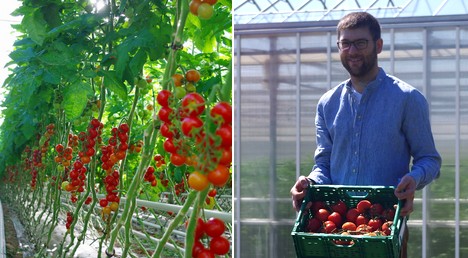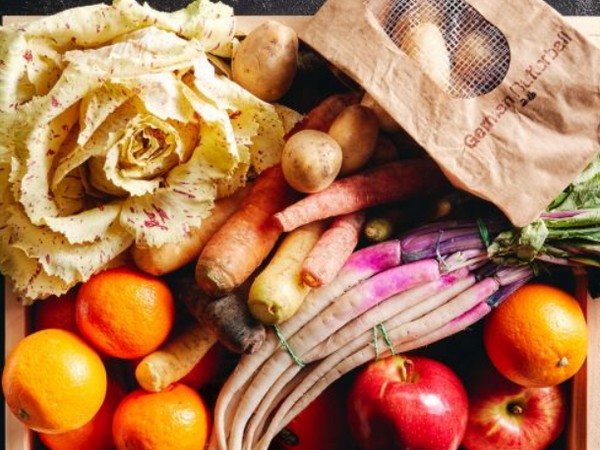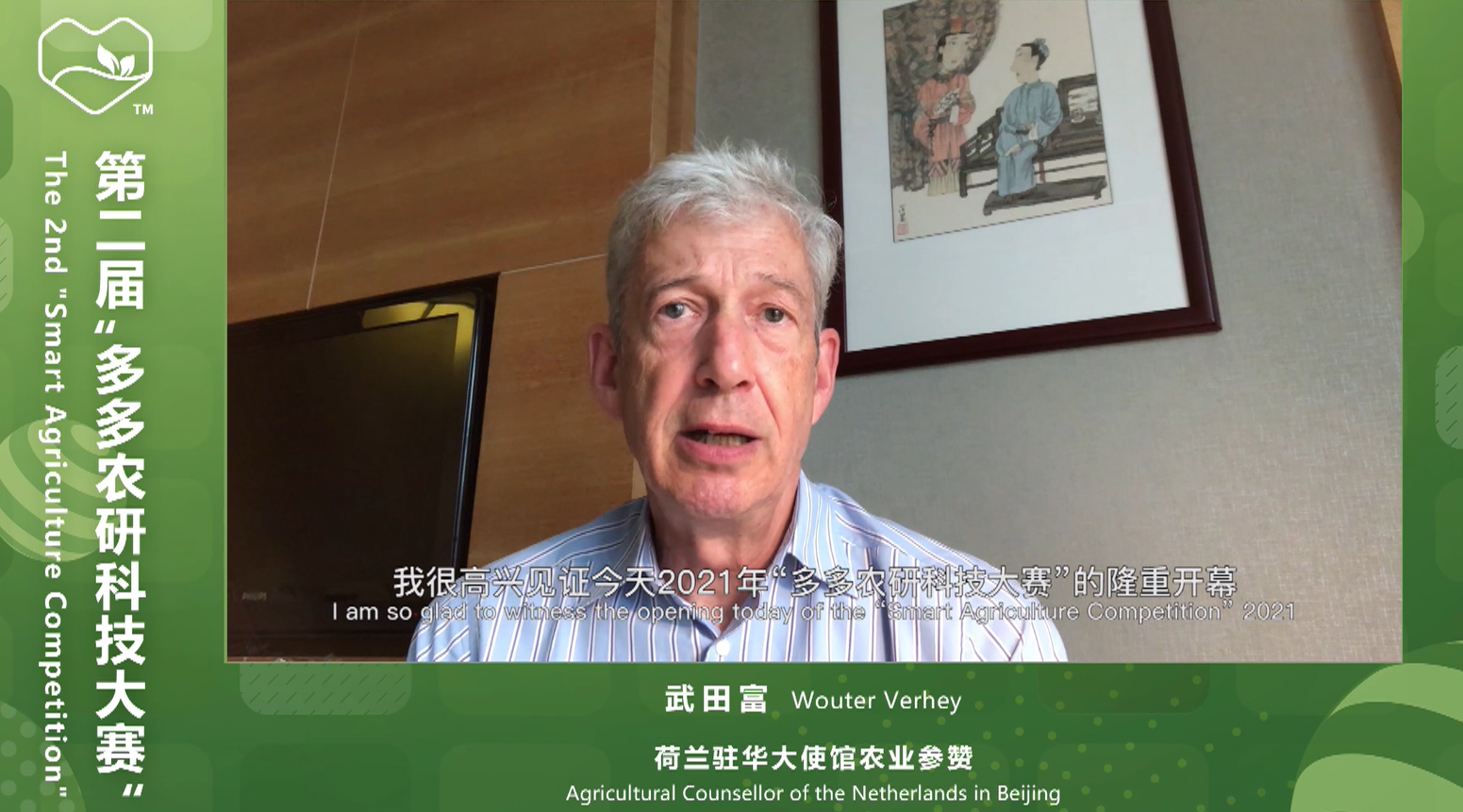According to media reports, organic cultivation and regionality are the decisive purchasing criteria for consumers in times of pandemic. But is this really the case? And does this ultimately lead to increased sales of regional organic products? Anton Naderer – a certified Naturland gardener based in Kirchdorf – explains.
In the glasshouse in Lower Bavaria, countless lettuces, such as oak leaf lettuce and Batavia, grow and thrive at this time of year. They are now slowly but surely starting the harvest, says Naderer. “Normally our lettuces are available until March, then we seamlessly start harvesting the first tomatoes and cucumbers.” Market-wise, the organic gardener should not complain, he adds. “Due to the cold weather in Spain and Italy, we are currently achieving good lettuce sales.”
Anton Naderer produces organic lettuces in winter, and in summer he devotes himself to the production of organic tomatoes and cucumbers.
Photo: Gemüsebau Naderer e.K.
Resource-saving heating
About 10 years ago, the horticulture expert decided to grow organic crops under glass. “My brother was already running a biogas plant at this location and so the idea came up to build a greenhouse right next door and use its waste heat to heat our crops. This way we don’t have to generate any heat ourselves and there are no additional CO2 emissions,” Naderer says on the advantages of this method.
Lettuce as far as the eye can see. The first lettuces were harvested at the end of January / Photo: Gemüsebau Naderer e.K.
Sales in times of Corona
The organic products are ultimately marketed via the regional health food trade and the farm’s own sales. In both sectors, the Corona pandemic has significantly accelerated the marketing of the vegetable crops. “In terms of volume, we did not sell so much more last year, but sales were secured throughout. Normally we would have a summer slump in marketing both at Whitsun and during the summer holidays. In the Corona year, however, that was not the case because people spent more of their holidays at home.”
But also in the long term, the demand for regional organic products is increasing, Naderer emphasises. “We cultivate several varieties, such as snake and mini cucumbers, bush tomatoes, cocktail tomatoes, San Marzano tomatoes and ox heart tomatoes. Especially for the cocktail vine tomatoes, the demand is trending upwards,” they say.
Left: Summer cucumber production Right: Batavia lettuces ready for harvesting / Photo: Gemüsebau Naderer e.K.
Competition with Southern Europe
Nevertheless, he says, the challenges for the further increase of organic vegetable products are numerous. Naderer: “During the summer months, there are tons of greenhouse vegetables from southern European cultivation. In contrast to Germany, these countries have neither CO2 taxes nor minimum wages. This is ultimately reflected in the final price of the product to be marketed. In addition, there is a shortage of skilled workers, which is why we are not planning to expand capacity for the time being.”
For more information:
Gemüsebau Naderer e.K.
Anton Naderer
Schidlambach 30
85414 Kirchdorf
Tel: 08444-924 94 30
Fax: 08444-924 53 96
E-mail: gemuesebau-naderer@web.de
Facebook












